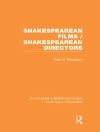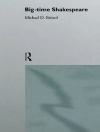Friedrich Maximilian Klinger’s ‘Faustus his Life, Death, and Doom’ presents a profound exploration of the Faustian archetype that has captivated writers and thinkers since the Renaissance. Written in 1791, the work blends elements of tragedy and philosophy, illustrating the decline of a once-great scholar who, in his desperate yearning for knowledge and power, makes a pact with the devil. Klinger’s unique literary style combines vivid imagery with philosophical undercurrents, reflecting the heightened emotionalism of Sturm und Drang, a movement that emphasized individual experience and the tumultuous nature of human existence. Through this reimagining of the Faust legend, Klinger engages with themes of ambition, moral conflict, and existential dread that resonate with the Enlightenment era’s burgeoning inquiry into individual agency and the nature of evil. Friedrich Maximilian Klinger (1752–1831) was an integral figure of early German Romanticism, whose formative experiences in a culturally rich milieu influenced his literary endeavors. A contemporary of Goethe, Klinger sought to assert a distinct narrative voice that questioned established norms. His own disillusionments with societal conventions and authority undoubtedly informed his portrayal of Faust as emblematic of the human condition’s struggles against transgression and consequence. ‘Faustus his Life, Death, and Doom’ is a must-read for anyone intrigued by the complexities of ambition and morality. Klinger’s treatment of the Faustian theme invites readers to reflect on their own lives and the cost of their desires. In doing so, this work remains a cornerstone of German literature, urging modern audiences to confront the timeless dilemmas of human aspiration and the ethical boundaries that accompany it.
عن المؤلف
Friedrich Maximilian Klinger (1752–1831) was a significant figure in the Sturm und Drang literary movement in Germany, which emphasized individual subjectivity and the free expression of emotional intensity in reaction to the rationalism of the Enlightenment. Born in Frankfurt am Main, Klinger’s career as a writer and thinker was deeply influenced by the tumultuous historical context of his time, including the French Revolution and Napoleonic Wars. His early works were characterized by a passionate critique of social injustice and played a pivotal role in defining the ethos of the Sturm und Drang epoch.
Klinger’s foray into the complexities of human morality and fate is perhaps best encapsulated in his work ‘Faustus his Life, Death, and Doom, ‘ a dramatic re-imagining of the Faust legend—a narrative that has been a recurring element in Western literature. Unlike Goethe’s more famous ‘Faust, ‘ Klinger’s iteration delves into the darker, existential dimensions of the human soul and its relentless pursuit of knowledge and power at the cost of spiritual damnation. Klinger’s writings reflect a deep engagement with philosophical and existential questions, marking him as a key precursor to later German Romanticism and the 19th-century literary exploration of the human condition. His contribution to literature showcases a bold narrative style imbued with intense emotion and a profound contemplation of the individual’s struggle against larger societal forces.












